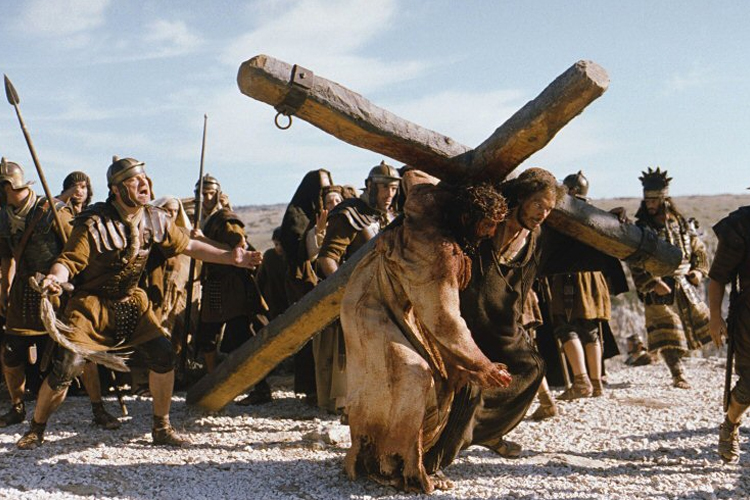What is the Paschal Mystery?
The Paschal mystery is the Passion, death and Resurrection of Jesus Christ by which he heals us from sin and enables us to become children of God.
The Passion of Jesus
The Passion refers to the sacrificial suffering and death of Jesus Christ by crucifixion on mount Calvary. Jesus foretold these events and made it clear to his disciples that he would suffer freely for the salvation of the world (Matthew 20:18-19).
After his Last Supper, Jesus was arrested in the Garden of Gethsemane outside the walls of Jerusalem. He was tried, found guilty and then handed over to Pontius Pilate who had him crucified. After this, he was scourged, crowned with thorns and led to the hill of Calvary carrying his cross. He died between two thieves. As he died he said, “It is accomplished” (John 19:30).
What is the atonement?
The word ‘atonement’ describes well Christ’s saving action. It implies both a repayment for our sins (to atone) and a reunion of God and humanity (making at-one). The atonement is accomplished through a sacrificial petition offered by Christ to God, the divine love of which utterly revokes the offence of all sins and bears the pain and cost of sin in itself. Only a person who was truly divine, human and innocent could make such an effective sacrifice on our behalf.
The atonement and ourselves
WHAT THE ATONEMENT DOES FOR US
Repays our debt of guilt
“The Son of Man came … to serve and to give his life as a ransom” (Matthew 20:28).
Gains mercy for us and repeals our punishment
Upon him was the punishment that made us whole (Is 53:5); “This is my blood … which is poured out for many for the forgiveness of sins” (Matthew 26:28).
Defeats the claims of the devil over us
“Now shall the ruler of this world be cast out” (John 12:31); deliver those… subject to lifelong bondage… (Hebrews 2:15).
Reconciles us to God
In Christ God was reconciling the world to himself (2 Corinthians 5:19).
Fulfils Scripture and salvation history
As a plan for the fullness of time, to unite all things in him, things in heaven and things on earth, making peace by the blood of his cross (Colossians 1:20).
The atonement also teaches us the seriousness of sin by the bitterness of its remedy, and manifests the extent of God’s love for us, “God shows his love for us in that while we were yet sinners Christ died for us” (Romans 5:8). By the atonement, Jesus has also given us the supreme example of sacrificial love, “Greater love has no man than this, that a man lay down his life for is friends” (John 15:13).
The descent to the dead
The soul of Jesus descended to the dead in the period between his death and Resurrection. Scripture refers to him “preaching to the spirits in prison” (1 P 3:18-20). In other words, he released those just souls who had died before his coming and opened heaven to them.
The Resurrection of Jesus
What is the Resurrection?
The Resurrection is the bodily rising of Jesus Christ from the dead after three days in the tomb.
St Peter states that Jesus rose physically: “[we] ate and drank with him after he rose from the dead” (Ac 10:41), but his glorified body had extraordinary new abilities. He appeared at different times and places, and his body, though glorified and transformed in appearance, still bore the wounds of the crucifixion (Jn 20:28).
The physicality of the Resurrection of Jesus, witnessed by so many, rules out the claim that only Jesus’ soul or ghost returned, or that only his message lived on, or that he merely revived, or that it was all an elaborate hoax.
The importance of the Resurrection for us
By his Resurrection, Jesus confirmed the validity of all he taught and did, showed that human life does not cease with death and manifested the reality of a glorified risen humanity.
What is the Ascension?
The Ascension is Jesus’ physical departure from his disciples. This event took place after forty days of appearances and teaching following his Resurrection. Scripture records him ascending to heaven, which signifies the “definitive entrance of Jesus’ humanity into God’s heavenly domain” (ccc. 665). Jesus is now in heaven, where he intercedes and prepares a place for us, and from where he shall come again at the end of time.
This article is originally from ‘CREDO: The Catholic Faith explained’ by CTS.
